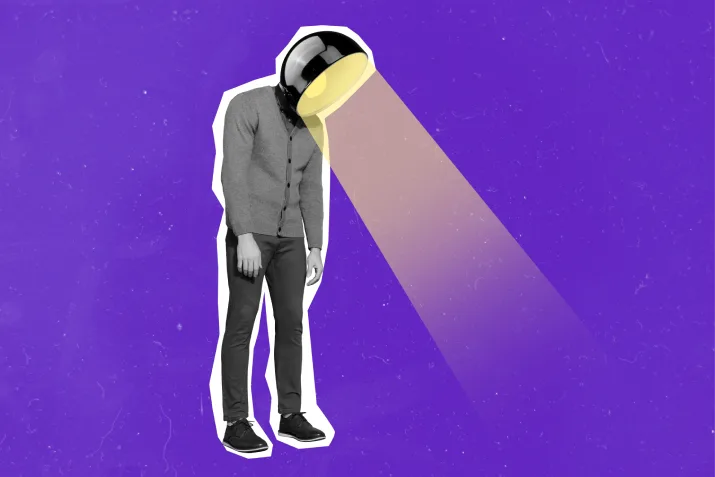Do universities check for AI plagiarism?
By Sarah Vercoe
Have you ever used ChatGPT to help with your uni work? Universities are relaxing the rules around AI, but you can still get caught out with AI plagiarism if you aren't using it responsibly. Here's what to know.
Artificial intelligence (AI) is transforming the way we live, work, and learn. We’re in the midst of a historic change, one that’s designed to make things that little bit easier. So, you wouldn’t be alone if you’ve ever been tempted to use an AI tool like ChatGPT for university.
But is that ever okay? And would your university even know if you did?
The answers to these questions are not as straightforward as you might think.
Do AI and university mix?
Surprisingly, yes. And universities are now allowing students to use it (to an extent).
Since the release of ChatGPT in November 2022 there have been mounting concerns over how AI will impact students’ learning, particularly via AI plagiarism. Initially schools and universities put measures in place to stem AI use, from enforced bans on ChatGPT to universities reconsidering how to conduct academic assessments, some reverting to the antiquated pen and paper model
But there’s been a shift as the education sector comes to the realisation a future where AI is interwoven with learning is inevitable. In 2024 it was announced ChatGPT would be allowed in all Australian schools, following education ministers backing a national framework designed to guide how the new technology is used.
Many Australian universities have also adjusted their policies to make room for AI in learning.
So what does that mean for students interested in integrating AI in their studies?
How universities allow students to use AI
It’s pertinent to note, not all universities allow the use of AI. And those that do have strict rules and parameters in place to ensure students don’t breach academic policy.
For those universities that are moving to embrace the technology—RMIT University, Swinburne University of Technology, the University of Adelaide, and the University of Queensland among them—rules and parameters vary. A common thread is that AI should enhance learning, not inhibit it. This means you should use AI in line with what’s deemed acceptable by the university and clearly reference any use of AI.
Dr Kitty Janssen, who teaches a first-year introductory subject about academic language, literacy and numeracy in education at Swinburne University of Technology, says they allow students to use generative artificial intelligence as long as they use it appropriately and responsibly.
“If students use artificial intelligence, it must be in line with what is considered appropriate for the unit,” says Dr Janssen, who explains each unit’s rules are different.

Within her subject, Dr Janssen says, “Any use of AI content must be acknowledged through referencing or a statement to that effect. Students who make such a statement may be asked how they used it and to what extent.”
Overcoming writer’s block, editing assignments and summarising articles are all examples Dr Janssen offers to her students for how AI might be used in learning.
Kok-Leong Ong, who is a Professor of Business Analytics in the College of Business & Law at RMIT University, says AI can be an immensely useful tool for students, particularly when it comes to productivity, enhancing knowledge within a discipline, and clarifying something they need to understand further.
Related reading: How you should—and shouldn't—use ChatGPT as a student
“From a student’s perspective there are a number of ways in which they can look at the tool. There are students who have used the technology not just to answer questions but to facilitate brainstorming ideas, to bootstrap research on what they would like to do. In other cases, they may use it to simply make sure they are able to present an assessment, written by themselves, into a format that is more formal; to check grammar,” he explains.
AI, and technology in general, is an ever-changing landscape for universities—and students—to navigate.
Although AI is no longer frowned upon at some universities, it’s crucial students understand its place in learning and how to avoid breaching their university’s academic integrity policy.
Can universities detect AI writing?
Universities have been navigating plagiarism long before AI came onto the scene, so they’ve devised a suite of ways to check if a student’s work is truly their own.
As new technology comes to the fore, AI writing detector tools, such as Turnitin and The Checker AI, have been developed alongside universities’ need to employ more sophisticated ways of checking for plagiarism.
Professor Ong says RMIT University uses Turnitin as a supplementary tool to ensure students’ work is their own. And they’re just one of many universities in Australia who utilise Turnitin, who launched an AI plagiarism checker component in April 2023.
"Our technology works by surfacing the most relevant matches for academic writing by comparing against the largest content database of scholarly content, student papers and current as well as archived web pages, built over our more than 25-year history,” says James Thorley, Regional Vice President for Turnitin Asia-Pacific.

The tool is reported to detect AI plagiarism with near-impeccable accuracy. "We continue to evolve our AI writing detection capabilities to maintain a false positive score of less than 1%,” Mr Thorley says.
However, the tool is not designed as a definitive, undisputed measure of misconduct, says Mr Thorley. “It should be regarded as an ‘assistant’ to teachers to supplement existing methods for detecting plagiarism and unoriginal work,” he explains.
And it is. Both Professor Ong and Dr Janssen say their respective universities employ a variety of ways to ensure students are producing work that is their own while meeting learning outcomes, including assessment types such as oral presentations and personal reflections. They also have a grading rubric that explicitly encourages students to write in their own voice or face penalisation through marking criteria.
What happens if your university catches you using AI?
Using AI in a way that breaches your university’s academic integrity policy may result in investigation and action under the student misconduct guidelines.
“If there is clear evidence a student used generative AI for their assignment and they did not acknowledge its use, they are investigated in line with our academic integrity procedure, in the same way they would any other breach of academic integrity,” Dr Janssen says.
If you’re now wondering how AI can support you in earning your university degree, it’s worth checking your university’s policy on AI before integrating it into your learning. Each university is different, and with different disciplines comes different ways in which AI might be acceptable—or not.



